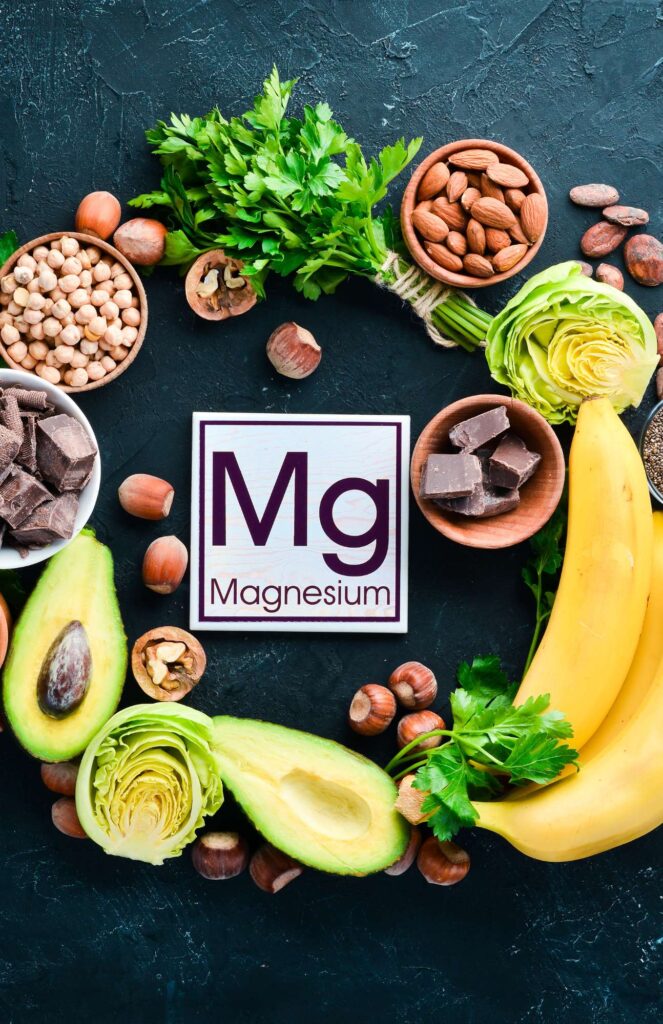Does Coffee Deplete Magnesium? Find Out Now!
Hello to all you coffee drinkers and health-conscious readers out there. Today we’re going to talk about something that’s been on the minds of many, including mine: Does coffee deplete magnesium? Before we dive into this question, let’s get familiar with magnesium and why it’s so crucial for our health.
Introduction to Magnesium: Its Importance to Health
Magnesium is one of the most important minerals in our body. It plays a key role in hundreds of biochemical reactions, including energy production, DNA synthesis, and nerve function. It also helps maintain a regular heartbeat, strong bones, and a healthy immune system. With such a vital role in our health, it’s clear why we need to ensure we’re getting enough of this essential mineral.
However, maintaining optimal levels of magnesium can sometimes be challenging. Factors like diet, lifestyle, and yes, even our coffee consumption, can affect our magnesium levels. This leads us to our main question: Does coffee deplete magnesium?
Table of Contents
Understanding Coffee: A Popular Beverage
Coffee, a beloved drink worldwide, is known for its stimulating effects and rich, robust flavor. It’s a morning ritual for many, a pick-me-up during work, and a comforting beverage to enjoy with friends. But beyond its taste and energy-boosting benefits, what else should we know about coffee?
A regular cup of coffee is a complex beverage containing hundreds of compounds, including caffeine, antioxidants, and essential nutrients. It’s been associated with numerous health benefits, such as improving mental alertness, reducing the risk of certain diseases, and even boosting physical performance.
However, like most things in life, it’s about balance. While coffee and caffeine intake can be beneficial, it’s also been linked to some negative effects. One of those is the possibility of it interfering with our body’s magnesium levels.

The Query: Does Coffee Deplete Magnesium?
So, does coffee deplete magnesium? The answer isn’t as straightforward as you might think. While some studies suggest that coffee may reduce magnesium levels, the reality is more nuanced.
Coffee has a diuretic effect, meaning it increases urine production. This can lead to an increased excretion of minerals, including magnesium. However, the amount of magnesium lost through this process is generally small and unlikely to lead to significant depletion.
On the other hand, some researchers believe that the caffeine in coffee could interfere with magnesium absorption. This theory argues that too much caffeine may reduce the amount of magnesium our intestines absorb, potentially leading to less magnesium.
The Relationship Between Coffee and Magnesium
The relationship between coffee and magnesium is complex. It’s clear that coffee can have some effect on our magnesium levels, but the extent of this effect varies widely depending on several factors.
Firstly, the amount of coffee you drink can play a significant role. Regular, moderate coffee consumption is unlikely to significantly affect your magnesium levels. However, too many cups of coffee might have a more substantial impact.
Secondly, your overall diet matters. If you’re consuming a diet rich in magnesium, the potential magnesium loss from coffee might be negligible. But if your diet is already low in magnesium, coffee could exacerbate this deficiency.

Scientific Studies about Coffee and Magnesium Depletion
Scientific studies on coffee and magnesium depletion have yielded mixed results. Some studies suggest that coffee might decrease magnesium levels, but others have found no significant impact.
In a study published in the Journal of the American College of Nutrition, researchers found that high intakes of caffeinated beverages, including coffee, were associated with decreased magnesium levels in older adults. However, the study also noted that this association was not strong enough to suggest a causal relationship.
Conversely, a study in the Journal of Human Nutrition and Dietetics found no significant association between coffee consumption and magnesium status in healthy adults. The researchers concluded that moderate coffee consumption does not negatively impact magnesium status.
How Much Coffee Can Cause Magnesium Depletion?
While it’s clear that excessive coffee consumption could potentially lead to magnesium depletion, defining ‘excessive’ can be tricky. The impact of coffee on magnesium levels is likely to vary from person to person, depending on factors like individual metabolism, diet, and overall health.
However, most health experts agree that moderate coffee consumption—defined as up to three or four cups per day—is unlikely to significantly deplete magnesium levels. On the other hand, consistently consuming large amounts of coffee—say, more than six cups per day—could potentially lead to issues.
Balancing Coffee Consumption and Magnesium Intake
So, how can we enjoy our beloved brew without worrying about our magnesium levels? The answer lies in balance and moderation.
If you’re a coffee lover, there’s no need to give up your favorite drink entirely. Instead, aim for moderate consumption and try to balance your coffee intake with a diet rich in magnesium. Foods high in magnesium include leafy green vegetables, nuts and seeds, legumes, and whole grains.
Also, consider pairing your coffee with a magnesium-rich meal or snack. This could help offset any potential magnesium loss and ensure you’re getting enough of this essential mineral.

Signs of a Magnesium Deficiency
While it’s unlikely that moderate coffee consumption will lead to magnesium deficiency, it’s a good idea to be aware of the signs. Symptoms of magnesium deficiency can include fatigue, muscle weakness, irregular heartbeat, and difficulty sleeping.
Some people have even experienced an increase in back pain from drinking too much coffee. This could be due to the fact that caffeine can cause dehydration, and having too much of it can ultimately lead to muscle tension in the back muscles.
If you’re experiencing these symptoms and consume a lot of coffee, it might be worth talking to your doctor. They can help determine whether your coffee consumption is contributing to lower magnesium levels and advise you on the best course of action.
How to Maintain Adequate Magnesium Levels
Maintaining adequate magnesium levels involves more than just balancing coffee consumption.
A balanced diet rich in magnesium-rich foods is crucial for the human body. Magnesium rich foods include green leafy vegetables, nuts and seeds, avocados, beans and chocolate just to name a few.
Regular exercise, adequate sleep, and stress management can also help maintain healthy magnesium levels.
Low magnesium levels are actually very common among the general population due to stress, the lifestyles we live and our diet. Magnesium supplements can be very helpful for various health conditions such as relieving muscle cramps, managing high blood pressure and for better sleep.
A personal favorite way to obtain enough magnesium is by taking a warm bath. You can read further about using magnesium flakes vs Epsom salts if this sounds appealing to you!
In some cases, a magnesium supplement may be beneficial. However, it’s always best to consult with a healthcare provider before starting any new supplement regimen.

What depletes the body of magnesium?
Factors that can deplete the body of magnesium include:
1. Excessive sugar and caffeine consumption
2. Inadequate intake of dietary fiber
3. High oxalate foods
4. Excessive intake of zinc and vitamin D
5. Consuming dairy foods
6. Depleted soil conditions and the use of chemicals in farming
7. Stress
8. Certain health conditions
9. Gastrointestinal and renal losses
10. Alcohol use
11. Chronic diarrhea
12. Excessive urination
13. Malnutrition
14. Certain medications
Additionally, depleted soil conditions and the use of chemicals in farming can lead to lower magnesium levels in plants and animals.
It is important to maintain a balanced diet and address any underlying health conditions to prevent magnesium deficiency.
What vitamins are depleted by caffeine?
Caffeine can deplete or affect the absorption of several vitamins and minerals in the body, including:
1. Vitamin D: Higher dietary intake of caffeine has been associated with deficiency in 25-hydroxyvitamin D levels. Caffeine can inhibit the absorption of vitamin D, which is crucial for calcium absorption and bone health.
2. B Vitamins: Caffeine acts as a diuretic, leading to increased urination and flushing out water-soluble vitamins, including B vitamins. It can also interfere with the metabolism of certain B vitamins, but it enhances the absorption of vitamin B12.
It’s important to note that moderate consumption of caffeine, such as limiting coffee intake to three cups per day, can help prevent potential adverse effects on nutrient levels. Separating coffee consumption from iron-rich foods or supplements and considering timing to minimize nutrient depletion may also be beneficial.
What minerals does coffee deplete?
Coffee consumption can potentially deplete calcium, iron, and magnesium levels in the body. Caffeine can interfere with the absorption of calcium and other minerals, and its diuretic effect can lead to dehydration and loss of essential electrolytes, such as potassium, sodium, chloride, and magnesium.
Caffeine consumption can also reduce blood levels of zinc by decreasing absorption in the gastrointestinal tract. Additionally, coffee may increase excretion of certain minerals including iron, calcium, and magnesium.
How can coffee consumption be balanced with other nutrients?
In order to counteract the potential nutrient depletion associated with coffee consumption, it is important to supplement with adequate amounts of iron-rich foods or supplements. It may also be beneficial to separate caffeine intake from meals in order to maximize absorption of essential vitamins and minerals.

Conclusion: Striking a Balance Between Coffee and Magnesium
In conclusion, the answer to the question, “Does coffee deplete magnesium?” is complex. While coffee can have some impact on magnesium levels, moderate consumption is unlikely to lead to significant depletion. Balancing coffee intake with a diet rich in magnesium and maintaining a healthy lifestyle can help ensure your magnesium levels stay in check.
So, go ahead and enjoy your daily brew. Just remember to balance it with a healthy diet and lifestyle, and listen to your body!


